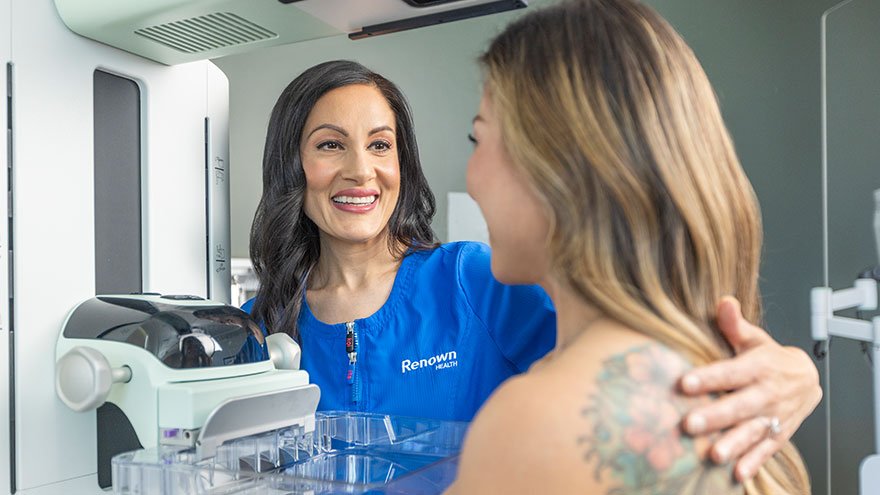

Colorectal cancer is the second-deadliest cancer in the United States – largely because it goes undiagnosed. Dr. Christi Matteoni, Division Chief of Gastroenterology at Renown Health, discusses the symptoms and key screenings used to detect this type of cancer, along with risk factors and lifestyle changes that could affect the likelihood of getting the disease.
What are some of the signs and symptoms of colorectal cancer?
Many cases go undiagnosed because polyps can develop and become cancerous without any symptoms. Additionally, since colorectal cancer begins as small polyps, symptoms usually aren’t seen until later stages. This is why screenings are especially important.
For those who do experience symptoms, the signs are often tied to your bowel habits. This can include changes such as:
- Constipation or diarrhea
- Narrow or dark stool
- Rectal bleeding
- Abdominal cramping
- Weakness and fatigue
- Unintended weight loss
What are some of the risk factors associated with this type of cancer?
There are risk factors that can and cannot be controlled including:
- Age (more common in people over 50)
- Race (higher risk for African Americans and those of Eastern European Jewish (Ashkenazi) descent)
- Personal and family history of colorectal cancer or polyps
- Certain genetic syndromes such as Lynch syndrome
- Inflammatory bowel diseases, including Crohn’s disease and ulcerative colitis
It’s important to discuss any of these risk factors with your provider.
There are also lifestyle factors that can help reduce your risk. Risk factors include:
- Being overweight
- A diet high in red and processed meat
- Smoking
- Consuming excess alcohol
Conversely, diets high in fruits and vegetables and a regular exercise routine can help lower your risk.
If someone has some of these risk factors, what should they do? Do they need to get tested?
If you are 45 or older and have any of these risk factors, we recommend you speak with your primary care provider about a formal colorectal risk assessment.
The most common form of screening is colonoscopy. This screening lets your doctor examine the length of your colon, map out any potential problem areas and remove polyps. For most people, colonoscopies are recommended every 10 years starting at age 50. However, depending on your results and risk factors, you may need to begin screening sooner or get screened more frequently.
What do diagnosis and treatment look like for this type of cancer?
There are several diagnostic options for colorectal cancer, including:
- Endoscopic ultrasound
- CT, MRI, and PET scans
- Biopsy and pathology reports
These technologies allow your doctor to get images of your colon and evaluate what treatment is needed, as well as how the treatment is progressing.
Treatment varies for each individual working with their doctor. In the case of colorectal cancer treatment, the William N. Pennington Institute for Cancer offers chemotherapy, radiation therapy, surgery and clinical trials.
Cancer Care at Its Best

Related Blogs


7 Symptoms of Breast Cancer in Young Women
